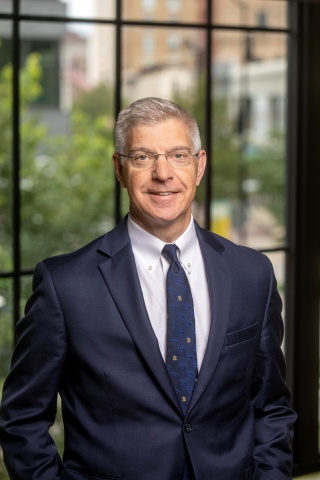With this issue dedicated to Pope John Paul II, it is timely to address a common misunderstanding that Acton is affiliated somehow with the Roman Catholic Church. Sometimes we are also asked whether Acton is linked to the Christian Reformed Church in North America because of the strong Dutch Calvinist presence in Grand Rapids, Mich., where the CRC and the Acton Institute are both based. In either case, the answer is no.
Acton has no ties with any particular church or religious community. That's not by accident – it's by design. The Acton Institute for the Study of Religion and Liberty is a nonprofit, nonpartisan, ecumenical research, and educational institute that conducts its affairs independently of any religious or political organization. In fact, as a nonprofit, Acton is legally barred by tax and election laws from engaging in political advocacy.
That said, Acton does have a strong component of Catholic scholars and leaders who have been associated with the institute's work during its 15-year history. Catholics include co-founders Rev. Robert Sirico and myself; Dr. Samuel Gregg, director of the Center for Academic Research; and Kishore Jayabalan, director of Acton's Rome office and a former Vatican policy analyst. Over the years, many of the writers, speakers, scholars, and advisors who have been involved in Acton's work were among the leading lights in Catholic social teaching: Michael Novak, George Weigel, Rocco Buttiglione, Cardinal Avery Dulles, Cardinal George Pell, Jennifer Roback Morse, and many more.
But Protestant scholarship and social teaching also informs much of Acton's work. The institute's Journal of Markets & Morality is edited by Stephen Grabill, a leading expert on natural law in the Protestant tradition. Protestant thinkers, speakers, and writers who have worked with Acton include Chuck Colson, Os Guinness, James Dobson, D. James Kennedy, and Carl F. H. Henry.
And as this issue of Religion & Liberty makes clear, we take seriously what Jewish thinkers have to say; our work is broader than Christianity alone.
Acton is engaged in what we might call “practical ecumenism” by drawing upon the best of various traditions to unite serious believers in defense of the human person and the building of a free and virtuous society.
Kris Mauren
Executive Director







